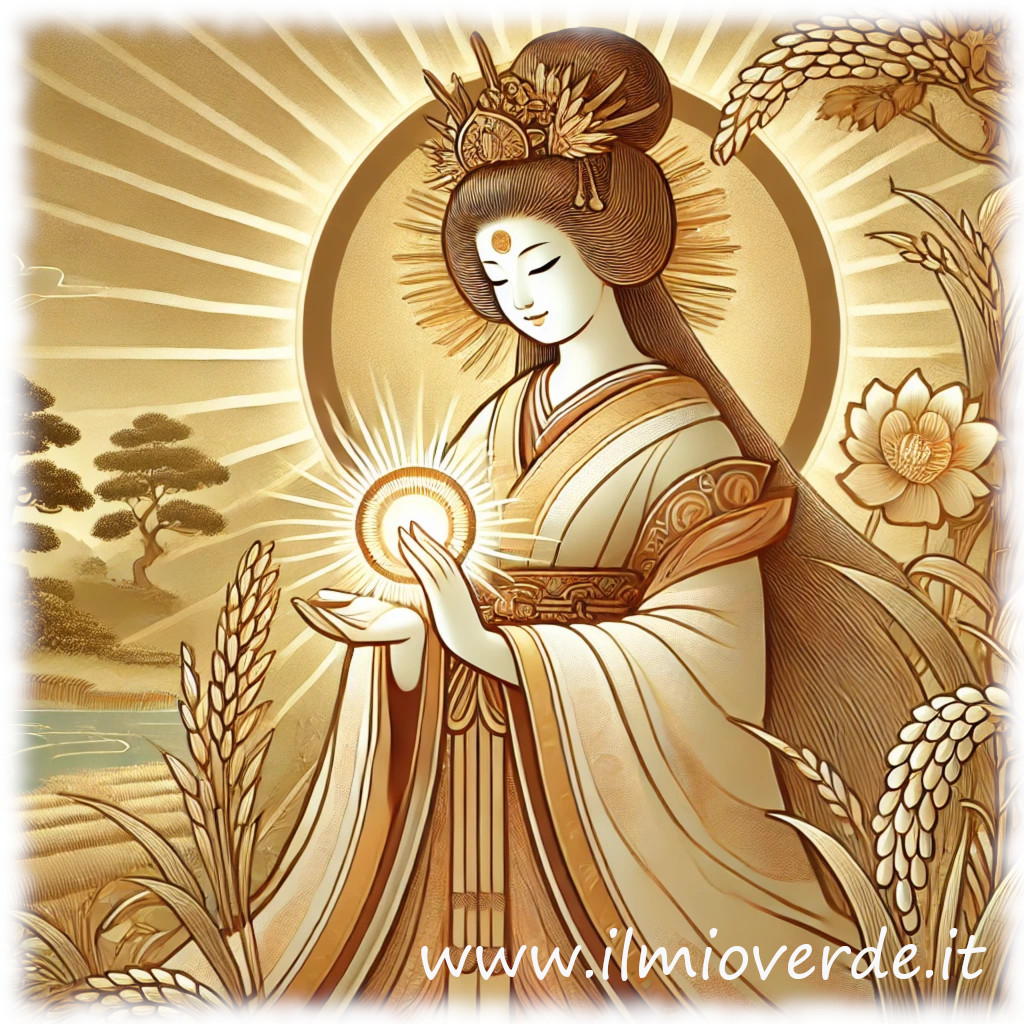Amaterasu
In the rich tapestry of Japanese mythology, few figures shine as brightly as Amaterasu, the radiant goddess of the sun. She is revered as the progenitor of the Japanese imperial family, and her story is rich in symbolism and meaning, reflecting the importance of the sun in the daily and spiritual life of Japan.
Origins and history
According to the Kojiki and Nihon Shoki, two of the oldest texts in Japanese history, Amaterasu was born from the creator deities Izanagi and Izanami. Her birth occurred when Izanagi, after purifying himself following his journey to the underworld, generated Amaterasu from his eye, bringing light and warmth to the world.
Appearance
Amaterasu is often depicted as a beautiful, radiant, and benevolent woman, symbolising life and prosperity. She is associated not only with sunlight but also with fertility and growth. Her manifestations include images of rice, grains, and other natural elements that thrive thanks to sunlight.
Role in mythology
Amaterasu plays a fundamental role in Japanese mythology, particularly in the myth of her birth and her retreat into a cave. After a conflict with her brother Susanoo, the goddess withdrew into a cave, and the world fell into darkness. The other gods organised a festival to coax her out, and when she finally re-emerged, she brought light and life back to the world. This event not only highlights her power but also symbolises rebirth and hope, echoing the seasonal changes that are vital to agriculture in Japan and reflecting the eternal cycle of day and night.
Culture and influence
Amaterasu is a central figure in Shinto, the traditional religion of Japan. Many temples, such as the famous Ise Shrine, are dedicated to her. She is celebrated in numerous festivals and ceremonies, such as the Shinto Matsuri, which honors her divine presence and vital role in the Japanese pantheon. During these events, devotees participate in processions and ceremonies that evoke her story, paying homage to the light and life she represents.
Amaterasu is not only a symbol of light and life but also a profound link to Japanese culture and history. Her mythology offers fascinating insights into how ancient Japanese people perceived the natural world and its impact on their lives, emphasizing the enduring connection between the divine and the everyday. Today, her image and story continue to inspire art, literature, and cultural practices, ensuring her legacy endures in modern Japan.
